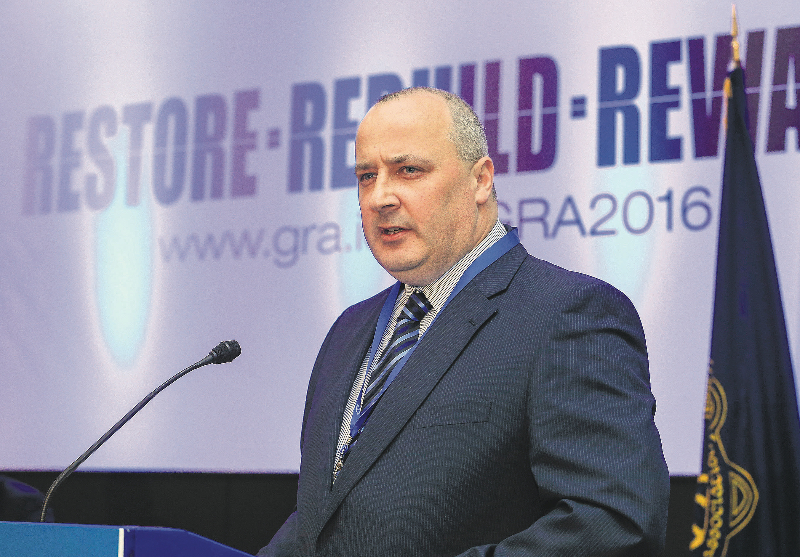GARDA morale is at an all-time low, with some members sleeping in their cars to make ends meet, according to Santry local and new Garda Representative Association (GRA) President, Ciaran O’Neill.
O’Neill called for the Government to reward gardaí for sacrifices made during the recession ahead of this week’s planned Dáil march by sergeants and inspectors to highlight demands for pay restoration.
New recruits in An Garda Síochána make just €23,171 during their first year of service, with no rent or fuel allowances afforded to them, which can prove costly for some Gardaí who have to drive over 90 kilometres each way to get to work.
O’Neill stresses that under current conditions, life is proving to be extremely difficult for young gardaí with some members having to sleep in their cars, ask parents to help out with rent or even take out bank loans to cover basic expenses.
“We are unique in society in that we don’t have the right to strike and we don’t have the right to form a union,” O’Neill told Northside People.
“The European Committee of Social Rights made a decision saying we should have those rights but the Government is disagreeing with that. Morale is at an all-time-low in An Garda Síochána, I can’t put it any other way.
“People are very frustrated, people are very angry. We are looking for our pay to be restored because people are finding it impossible to survive.
“We put our shoulder to the wheel when times were tough. We took the cuts, we took the hits, and we worked 30 hours for free over the past few years.
“We have a Government telling us that the economy is in recovery and that the emergency is over; either somebody is telling lies or stand by what you’re saying.”
O’Neill also said that the current payscale is having a detrimental effect on recruitment numbers.
Five recruits have left the Garda College in Templemore since the gardai resumed recruitment in November 2014.
In total, 685 recruits have qualified since 2014 but it’s not the gardai who have qualified that worries O’Neill, or even the gardai who haven’t – it’s the recruits that have left Templemore as a result of financial fear.
“Five recruits have now left the job to seek other employment because the pay is better outside than in An Garda Síochána. That’s unprecedented; that has never happened on such a scale over such a time period.
“To have five recruits leaving, and the sole reason they’ve left is pay, isn’t great.
“They all want to do the work, they all like the work, the work has great variety and every day is different and enjoyable, but they’re finding it a real struggle and extremely tough to survive on the pay.”
The struggle for young gardaí isn’t helped by spiralling inner city rents and the removal of allowances.
O’Neill has said that his primary objective as GRA President is to restore pay conditions to what they were before 2008 when first year Garda recruits would earn a salary of €25,745, but for some, they may not be able to wait that long.
One Garda testimony reads: “I travel one hour 26 minutes every day to work and I come away with about €340 net pay; €80 of which goes on diesel.
“I have to pay a small mortgage and the usual bills and if it wasn’t for my partner earning a good wage, I’d be in dire circumstances.”
Another testimony says: “I have found it very difficult to cope financially in this job as I came from an average job in retail and made three times per week what I do now.”
Another member said: “I love the job that I do and I entered the gardaí in order to help people and serve my community. Nevertheless, these difficult and unfair pay conditions have put me in a situation where I am considering leaving the job.”
REPORT: Jack O’Toole
